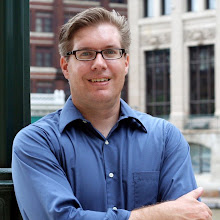danah boyd on the Seigenthaler-Wikipedia Controversy
danah boyd has an excellent post on the recent Seigenthaler-Wikipedia controversy, focusing particularly on the academic community's response:
What pissed me off more was how the academic community pointed to this case and went “See! See! Wikipedia is terrible! We must protest it and stop it! It’s ruining our schools!” All of a sudden, i found myself defending Wikipedia to academics instead of reminding the pro-Wikipedians of its limitations in academia. I kept pointing out that they wouldn’t let students cite from encyclopedias either. I reminded folks that the answer is not to protest it, but to teach students how to read it and to understand its strengths and limitations. To actually TEACH students to interpret web material. I reminded academics that Wikipedia provides information to people who don’t have access to books and that mostly-good information is far better than none. Most importantly, i reminded academics that the vast majority of articles on Wikipedia are super solid and if they had a problem with them, they could fix them. Academics have a lot of knowledge, but all too often they forget that they are teachers and that there is great value in teaching the masses, not just the small number of students who will help their careers progress. Alas, public education has been devalued and information elitism is rampant in an age where we finally have the tools to make knowledge more accessible. Sad. (And one of the many things that is making me disillusioned with academia these days.) I found myself being the Wikipedia promoter because i found the extreme academic viewpoint to be just as egregious as the extreme Wikipedia viewpoint.Moral of the story: Wikipedia should be the first source for information, not the final one, and we should teach students to be critical of all sources of information.
...I am worried about how academics are treating Wikipedia and i think that it comes from a point of naivety. Wikipedia should never be the sole source for information. It will never have the depth of original sources. It will also always contain bias because society is inherently biased, although its efforts towards neutrality are commendable. These are just realizations we must acknowledge and support. But what it does have is a huge repository of information that is the most accessible for most people. Most of the information is more accurate than found in a typical encyclopedia and yet, we value encyclopedias as a initial point of information gathering. It is also more updated, more inclusive and more in-depth. Plus, it’s searchable and in the hands of everyone with digital access (a much larger population than those with encyclopedias in their homes). It also exists in hundreds of languages and is available to populations who can’t even imagine what a library looks like. Yes, it is open. This means that people can contribute what they do know and that others who know something about that area will try to improve it. Over time, articles with a lot of attention begin to be inclusive and approximating neutral. The more people who contribute, the stronger and more valuable the resource. Boycotting Wikipedia doesn’t make it go away, but it doesn’t make it any better either.
I will be truly sad if academics don’t support the project, don’t contribute knowledge. I will be outraged if academics continue to talk about having Wikipedia eliminated as a tool for information dispersal. Sure, students shouldn’t be citing from Wikipedia instead of the primary texts they were supposed to have read. But Wikipedia is a stunning supplement to most texts and often provides pointers to other relevant material that one didn’t know existed. We should be teaching our students how to interpret the materials they get on the web, not banning them from it. We should be correcting inaccuracies that we find rather than protesting the system. We have the knowledge to be able to do this, but all too often, we’re acting like elitist children. In this way, i believe academics are more likely to lose credibility than Wikipedia.
Technorati tag: wikipedia

<< Home